Our approach
At U-center we treat the person as a whole, not just the condition
Beyond the problem
Problems often do not come alone but are interconnected. U-center is an expert in treating complex co-occurring disorders. We treat multiple disorders in parallel. Our integrated approach is unique and fully tailored to your personal situation. Your treatment programme is designed so that you can resume your role in society again as soon as possible.
Read more about the U-turn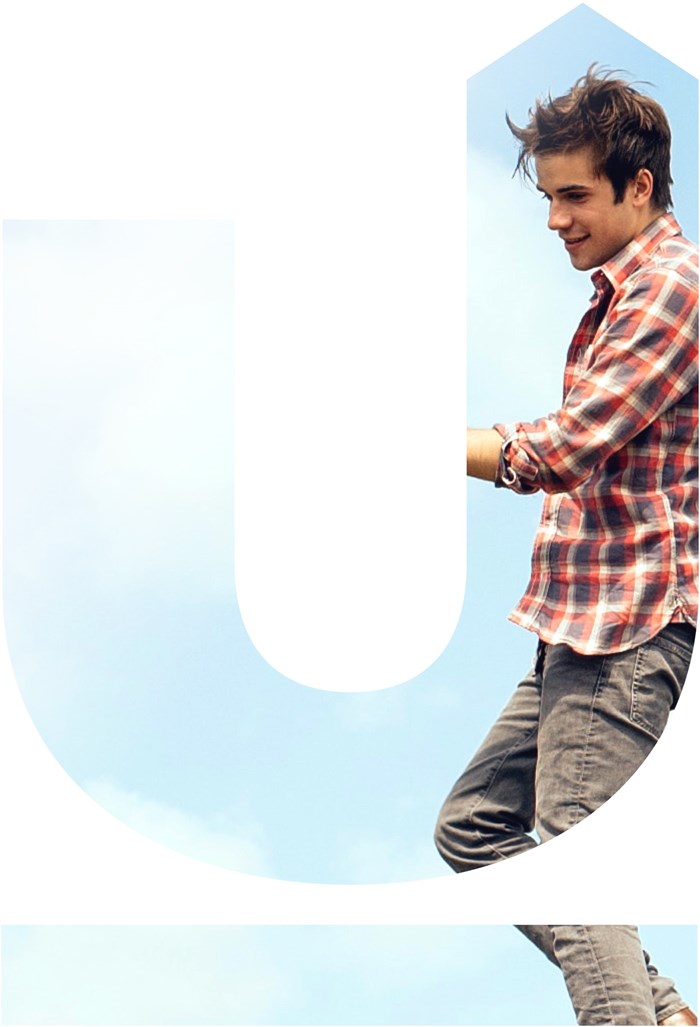
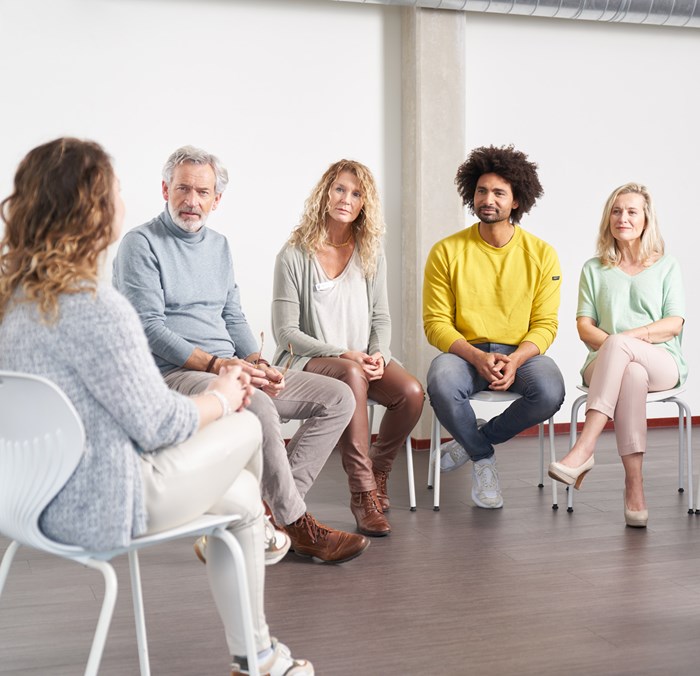
The treatment process
Sustainable change
Your treatment programme consists of an inpatient stay of seven weeks. We will work together on sustainable change. We use a wide range of therapies, interventions, training, etc. The theoretical basis of the treatment at U-center is based on 2 pillars; namely the bio-psycho-social model and the theory U. They form the basis for diagnostics, the analysis of the problem, the treatment plan and the treatment program we offer.
Read more about our treatment
A turning point in your life
Phase 1
7 weeks clinical treatment
Your treatment programme consists of an inpatient stay of seven weeks. During your stay at U-center you will be confronted with yourself, your behaviour and possibly also situations from your past.
You will learn to let go of old patterns and to replace them with new behaviour to cope with difficult situations. The programme is designed so that you will start recognizing patterns and behaviour in order to learn new behaviour. Then you can eventually achieve a situation where you can live a productive and fulfilling life again. We do this with the help of individual consultations, and group therapy where your loved ones can also be involved.
We start by developing your Personal Development Plan. Together with your therapist, you determine which goals you would like to reach during the programme and how we are going to achieve that together. Towards the end of the seven weeks the emphasis lies on a Personal Development Plan. It is like a clear manual you can refer to, and which will help you not to fall back into old patterns. In essence, our approach is unique and personalized and designed to sustain lasting change in your life. Time for a new perspective!
A typical day at U-center
A nourishing breakfast gets the day off to a good start so you are ready for the first therapy sessions. These could be a group session, an individual consultation or an opportunity to work on yourself. An appetizing lunch prepares you for the afternoon sessions. For dinner you can choose from two delicious menus, after which you have time for yourself and to relax.
Morning (breakfast 7:30 - 8:15)


Afternoon (lunch 12:30 - 13:30)


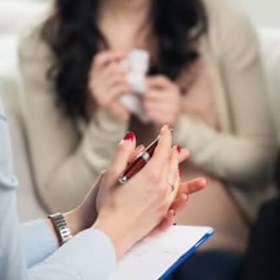
Evening (dinner 18:00 - 19:00)

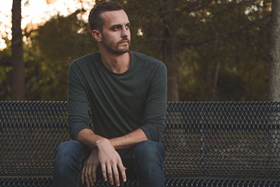

Outpatient care
After spending seven weeks at U-center’s residential centre in Epen, you are ready to go home and continue your treatment as an outpatient.


Putting what you have learnt into practice
We know from experience that the period after leaving our residential centre can be difficult. More than likely, your home situation has not changed much and you need to start applying your newly acquired behaviour and use the tools you have been given at U-center. Your outpatient therapist can provide support and guidance at this time.
Quote
It really is a U-turn. Looking back, compared to how I’m living now, it was a life-saver.
Interview with D. Smith
Why did you come to U-center?
“I did not have to come to U-center but I heard only good things about it: I could either come to U-center or to a military center and my therapist at Spangdhalem Air Base recommended that I come here – we both felt it would be best for me. I was treated for PTSD (post- traumatic stress disorder), depression and anxiety as a result of my life in the military. A really good friend also passed away - we worked together in the military. He passed away in an accident and I blamed myself for it.
Being in the military has so many challenges - like being in dangerous areas so often. You can’t turn off the stress levels, and pressure. In the beginning I could, but I have done it so many times, that it just stays on. It’s the pressure of that, as well as being so aware and constantly on alert. As well as unfamiliar places, crowds, explosions. And just dangerous situations. I’m coming up on 20 years in active service. I’ve served in Afghanistan, Niger, Jordan, Kuwait, Kurdistan, and I could keep on - I’ve been to so many conflict zones. Afghanistan and Niger were particularly challenging."
How did U-center differ from treatment you followed previously?
“It was good that U-center is not a military facility. I was not my rank or the air force – I could just be myself and that was really important to heal. The treatment at U-center was much more intense and holistic than treatment I followed previously in the air force – from eating right, to exercise, group therapy as well as individual therapy. Previously I was only doing cognitive behavioural therapy. At U-center I could choose from a variety of therapies.”
How was the treatment programme tailored to your needs?
“The U-center staff came with their recommendations, and it was nice because I had a lot of choice. You made it really clear to me that it was your recommendation, but it was my choice. While I was there I changed some of my therapies to ones which worked better for me. And at one point I also moved rooms to one where I was more comfortable.”
What aspects of the treatment did you appreciate most and why?
“There was quite a bit actually. It was my first time ever doing EMDR, and I was really quite shocked how much it helped me. It really took the details of what happened out of my head so they weren’t repeating all the time, not so aggressive. It doesn’t spark the emotions and feelings in me anymore. I’ve never had that happen before, and it helped so quickly.
Group therapy I had never done before, so that was a little bit scary for me to open up in front of other people. But it proved to be a really deep learning experience because I was there with other people who had also suffered from their own personal things. To open up in front of other people and see that they don’t really judge you, was very empowering for me, because I had always kept everything so inside. People trusted me with their issues and I trusted them with mine. It was actually kind of surprising, it wasn’t what I thought people would be like."
How did U-center help you understand the reasons behind your conditions?
“Sometimes it’s not something you really want to admit to yourself, understanding why you’re there and why you have what you have. But I do think it’s important to understand how one thing can affect your life. If you work on that one thing, it will alleviate a lot of the effects. Not easy, it can be a hard pill to swallow. I think that sometimes we are not truthful with ourselves, and we have to be.”
How were the staff and hospitality at U-center?
“The staff were really great, with counsellors on the premises at all times. They’re extremely supportive of you, and also try to motivate you to get out there and try different things, even if you’re not feeling your best.
I worked closely with my mentor who I had therapy sessions with - she was really amazing. She was the person I could go to if I had any issue or problem at any time. Having that person to see on a more regular basis, to check on me and make sure I’m OK, was really good.
The psychologist I had was also really great and adapted the sleeping medication to get the right dose.
And the food – healthy! Well honestly, it was delicious. Especially at the end, you realize that eating healthy and feeling good are going to help you.”
How do you maintain your U-turn today?
“I tell everybody it helps me. I talk to everyone about it today! It really is a U-turn. Looking back, compared to how I’m living now, it was a life-saver. I wasn’t living before. I feel much more able to go out there and socialise. I have noticed the difference, my friends, colleagues too. I’m not ashamed of having PTSD and anxiety, I’m much more open about it. U-center helped me to come to terms with it. You’ve given me back my life.
That’s not to say I don’t still have tough times. I do, but they’re not nearly as intense, and I am able to recover from them on my own. From week one you start on your relapse prevention plan. It’s a pain to make, but it’s something I’ve used a lot and have memorised now. I know the warning signs. Mindfulness, relaxation techniques - I use those on a daily basis. Now I can really quickly overcome an episode of depression and it’s empowering. Anxiety, I’m still working on it. Now I’m taking more risks, letting myself be comfortable in public and stressful situations. You gave me the tools to help myself.”

Our treatments
Attention to body and mind
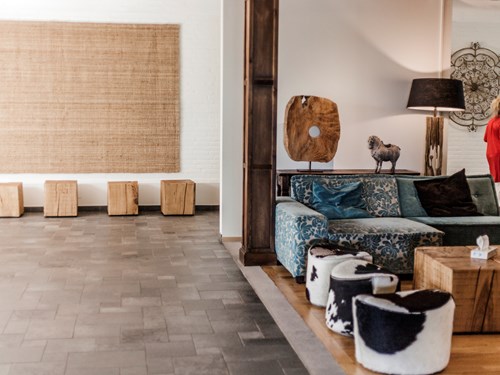
Our treatment center
The ideal environment for working on yourself